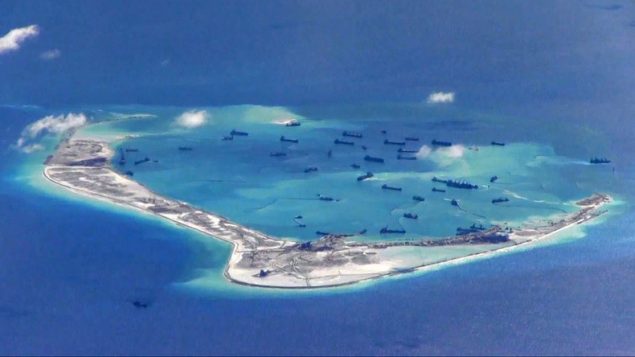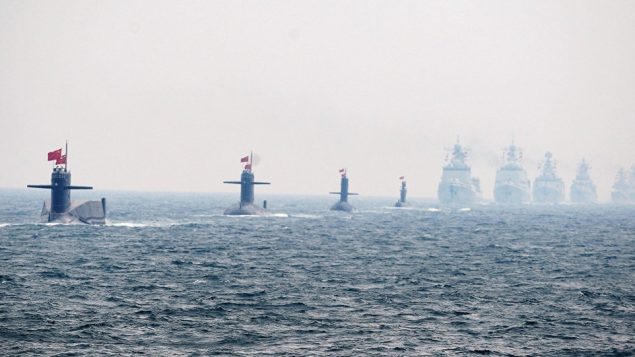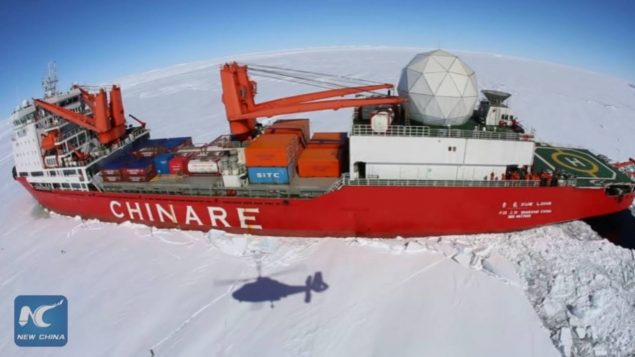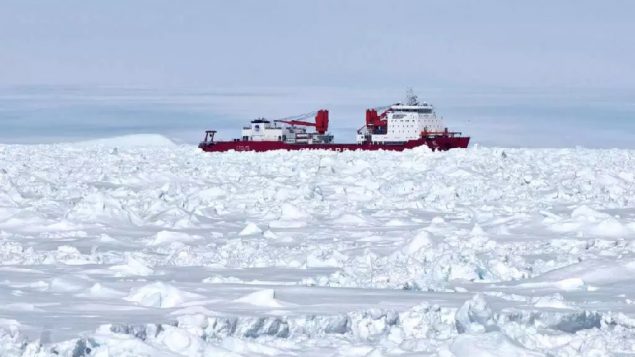This month China took what may be called an unusual step of releasing a public policy paper on the Arctic, and did so in English.
Calling itself a “near Arctic state” it indicates China intends to take an important role in both policy and development of the Arctic.
Robert Huebert(PhD) is an expert in military and Arctic affairs as a professor in the University of Calgary Political Science Department and as a Research Fellow at the Centre for Military and Strategic Studies also at the University of Calgary
ListenChina’s announcement about its Arctic intentions-set forth in the publicly released “white paper”, includes an astounding financial investment to build or improve ports, ships, rail links, and international agreements.
Somewhat surprisingly, some would say, are repeated references to “respect”.

China says it will respect the environment,, sovereignty, and indigenous rights in the north, but its actions in creating artificial island military bases to lay claim to 90 % of the South China Sea in spite of United Nations condemnation, sends a different picture PHOTO: USN-Reuters
This includes repeated reference to respect in a variety of ways, harmony with nature, and sustainability, although China’s record domestically and internationally doesn’t seem to portray the same message.

China is busy building and modernising its naval forces to rival that of the Soviets and U.S. ans so extend its power and influence internationally.PHOTO: AFP 2017/ POOL / Guang Niu
. It should also help to promote coordinated development of activities in all fields to ensure the harmony between natural conservation and social development.
China’s document also declares that the Arctic “situation” should not be limited to mere Arctic nations stating:
“The Arctic situation now goes beyond its original inter-Arctic States or regional nature, having a vital bearing on the interests of States outside the region”.

China’s “Snow Dragon” icebreaker on a mission to a Chinese research station in Antarctica 2016; PHOTO: New China TV- Youtube
As Professor Heubert points out, even with the many references to respect, including international law, the Chinese are rapidly building a first class naval force along with plans for a second large ice-breaker.
He says it’s a signal China wants to work with other nations in the Arctic, but other nations including Canada have to decide “at what price”.
additional information
- China White Paper on Arctic
- China State Council Information Office- Arctic press briefing
- Maritime Executive: M Bennett: Jan 28/18: What’s actually said?
Ron Huebert 2016 annual national Congress of the Humanities and Social Sciences- U Calgary







For reasons beyond our control, and for an undetermined period of time, our comment section is now closed. However, our social networks remain open to your contributions.